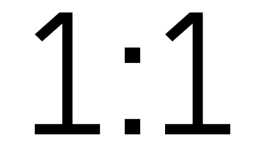Using the Land as its Own Map: Art on the 1:1 Scale
Tuesday, September 29, 2015, 7 - 8:30pm

A free, public lecture by Stephen Wright on the growing number of contemporary practices which break with both the regime of representation and with a reduced-scale paradigm.
By and large, it was on a reduced scale that twentieth-century art set out to map the real. This, however, may have been more by convention than necessity; and it appears to be changing. In Sylvie and Bruno Concluded (1893), Lewis Carroll introduces a somewhat otherworldly character by the name of Mein Herr who speaks of a cartographic practice and form of land use, which, though widespread in his country, is unknown to his hosts: “use the country itself, as its own map.” Using a territory as a map of itself challenges the conventions and very logic of map-making. Yet it is precisely this logic of an “art on the 1:1 scale” that we find at work in a growing number of contemporary practices, which seem to have broken both with the regime of representation and with a reduced-scale paradigm, ramping up their scale of operations to make their territory of intervention its own cartography. The ontological discontinuity between the map and the territory — and by extension, between art and the lifeforms it engages with — disappears as soon as the territory is made to operate on a 1:1 scale as its own map. In challenging modernity’s scalar bias, many contemporary practices are no longer distinguishable from their object on the basis of scale and thus of use. What then are the conditions of possibility and usership implied by the mapping function — or the becoming-map — of a territory?
Stephen Wright is a Paris-based writer about art and teaches the practice of theory at the European School of Visual Arts. His writing has focused primarily on the politics of usership, particularly in contexts of collaborative, extradisciplinary practices with variable coefficients of art. His current research deals above all with the ongoing usological turn, and current forms of contemporary escapology, in the fields of art and epistemology, examining the conditions of possibility and use of practices which have deliberately withdrawn from the event horizon, necessitating a fundamental reconsideration and repurposing of the conceptual architecture and vocabulary inherited from modernity. In 2013, he published Toward a Lexicon of Usership.
The Interdisciplinary Seminar, sponsored by the The Cooper Union School of Art, presents a series of free, public lectures reflecting a broad range of contemporary art issues. Speakers include artists, writers, and thinkers currently engaged in a variety of practices. The emphasis is on interdisciplinary approaches, presenting new voices, international perspectives and scholarship across multiple fields. The series constitutes a lively forum for the exchange of ideas between practitioners, students, faculty and the public.
The Fall 2015 Interdisciplinary Seminar is part of the Robert Lehman Visiting Artist Program at The Cooper Union. We are grateful for major funding support from the Robert Lehman Foundation, Inc.
Located in the Frederick P. Rose Auditorium, at 41 Cooper Square (on Third Avenue between 6th and 7th Streets)




